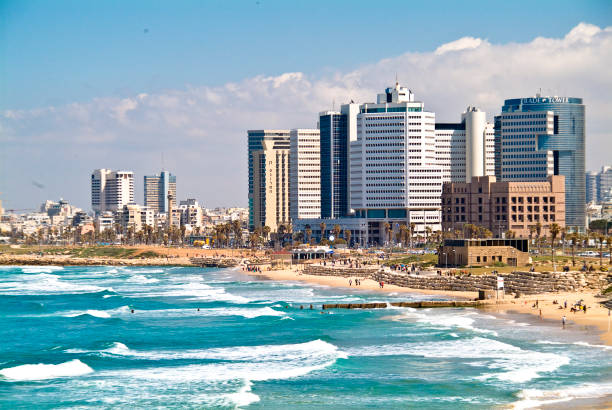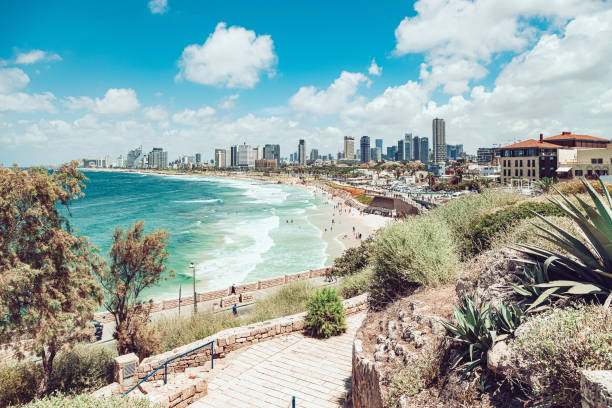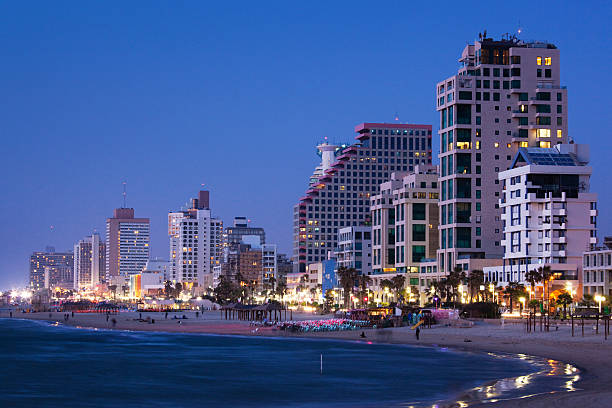Tel Aviv: The Vibrant Heart of Israel
Tel Aviv, located on the Mediterranean coast of Israel, is one of the country’s most dynamic and cosmopolitan cities. Known for its lively culture, high-tech innovation, rich history, and beautiful beaches, Tel Aviv represents the modern face of Israel. From humble beginnings as a small suburb of ancient Jaffa, it has transformed into a global hub for technology, tourism, and culture.
Historical Background
Tel Aviv was officially founded on April 11, 1909, when a group of Jewish families gathered on the sand dunes north of Jaffa and allocated plots of land using seashells. Theodore Herzl’s book Altneuland served as the inspiration for its name, which translates to “Hill of Spring” in Hebrew. Initially built as a Jewish suburb of the ancient port city of Jaffa, it expanded rapidly, especially during the British Mandate period, attracting waves of Jewish immigrants fleeing persecution in Europe.

During the 1930s and 1940s, Tel Aviv grew both economically and culturally. It became the center of the Yishuv (the pre-state Jewish community in Palestine) and was the site where Israel’s Declaration of Independence was signed on May 14, 1948. Following the establishment of the State of Israel, Tel Aviv continued to thrive, even as Jerusalem became the official capital.
Culture and Lifestyle
Tel Aviv is often referred to as “The City That Never Sleeps.” It is known for its vibrant nightlife, trendy cafes, art galleries, and rich cultural life. Tel Aviv is also famous for its Bauhaus architecture, which earned it recognition as a UNESCO World Heritage Site in 2003 under the title “White City.” The city’s architecture reflects the European modernist styles brought by German Jewish immigrants during the 1930s. With a diversified population that includes Arab citizens, religious communities, secular Jews, and foreign workers, the city is a cultural melting pot.
Economic and Technological Center
Tel Aviv is Israel’s economic powerhouse. Often dubbed the “Silicon Wadi” (a play on Silicon Valley), it is home to numerous startups, tech companies, venture capital firms, and research institutions. Major international companies such as Google, Microsoft, Intel, and Apple have a significant presence in Tel Aviv.
The Tel Aviv Stock Exchange (TASE) is located in the heart of the city and serves as the central hub for financial trading in Israel.

Tourism plays a crucial role in the economy, attracting millions of visitors every year who come for the beaches, culture, cuisine, and historical sites.
Education and Innovation
The city is home to Tel Aviv University, which is among Israel’s top research universities. It is renowned for its contributions to science, technology, and the arts. The city fosters innovation through incubators, accelerators, and partnerships between academia and industry.
Tel Aviv also hosts numerous international conferences and exhibitions, such as the DLD Innovation Festival, which attracts global leaders in tech and entrepreneurship.
Challenges and Resilience
Despite its success, Tel Aviv faces several challenges. The high cost of living, housing shortages, and income inequality are pressing issues. The city is also situated in a region with ongoing political and security tensions.
Nevertheless, Tel Aviv has shown remarkable resilience. It remains a symbol of openness, progress, and creativity.
Conclusion
Tel Aviv is a unique city that blends modernity with history, tradition with innovation. It is not just a center of economic activity but also a cultural beacon in the Middle East. As Israel’s second-largest city, Tel Aviv reflects the hopes, dreams, and dynamism of a nation constantly evolving. Whether for its cutting-edge technology, rich heritage, or pulsating nightlife, Tel Aviv stands as a testament to human creativity and resilience.

